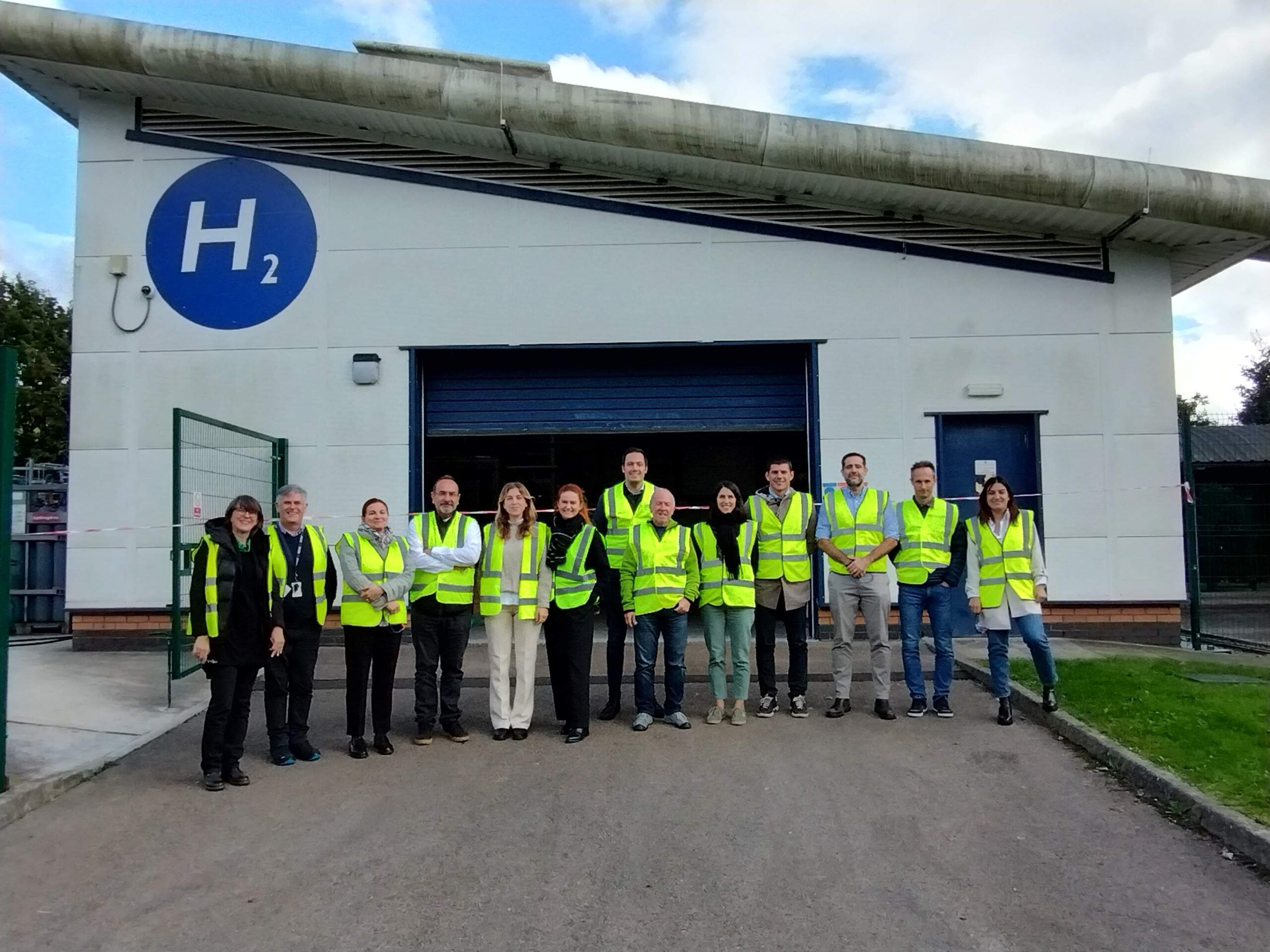
General Assembly, 1st and 2nd of October, 2024
H2SHIFT consortium met at the University of South Wales’ Hydrogen Centre for its second General Assembly. It was a good opportunity to catch up with the progress of the project during its first six months, and to visit Test Line #2.
The creation of the Single Entry Point is progressing with the drafting of the Statute and the Founding Act. The project is also developing the access process accompanying the users of the H2SHIFT Open Innovation Test Bed (OITB), i.e., start-ups and SMEs potentially interested in developing renewable and low carbon hydrogen production technologies.
The approach will encompass a selection process, the technical assessment leading to the match with the test lines and supporting services, and the proposed IPR management strategy, amongst others. Engagement of the potential users will start soon with a survey campaign aiming to establish the needs of the potential OITB’s customers and thus validate the offer, and ensure the optimisation of the test lines’ set up. Work on most of the test lines is being planned, while preliminary assessments are already driving the procurement of the required components and equipment. Plans for the first dissemination events in the autumn and during the new year were also discussed.
Jon Maddy, our host from the University of South Wales, took the participants on a tour of the Hydrogen Centre’s facilities. Set in Baglan Energy Park, Port Talbot, the Centre was designed internally and built to the highest standards of safety. It specialises in supporting the scaling up and integration of hydrogen production, storage and application technologies, with facilities for long term testing of pilot scale devices. Within project H2SHIFT, USW is managing test line #2 with the testing of large scale AEM technologies. Amongst the firsts to start with the showcasing of its test line, USW is currently hosting the long term testing of a 100kW AEM electrolyser integrated by Protium and constituted by some 40 2.4kW Enapter modules.
